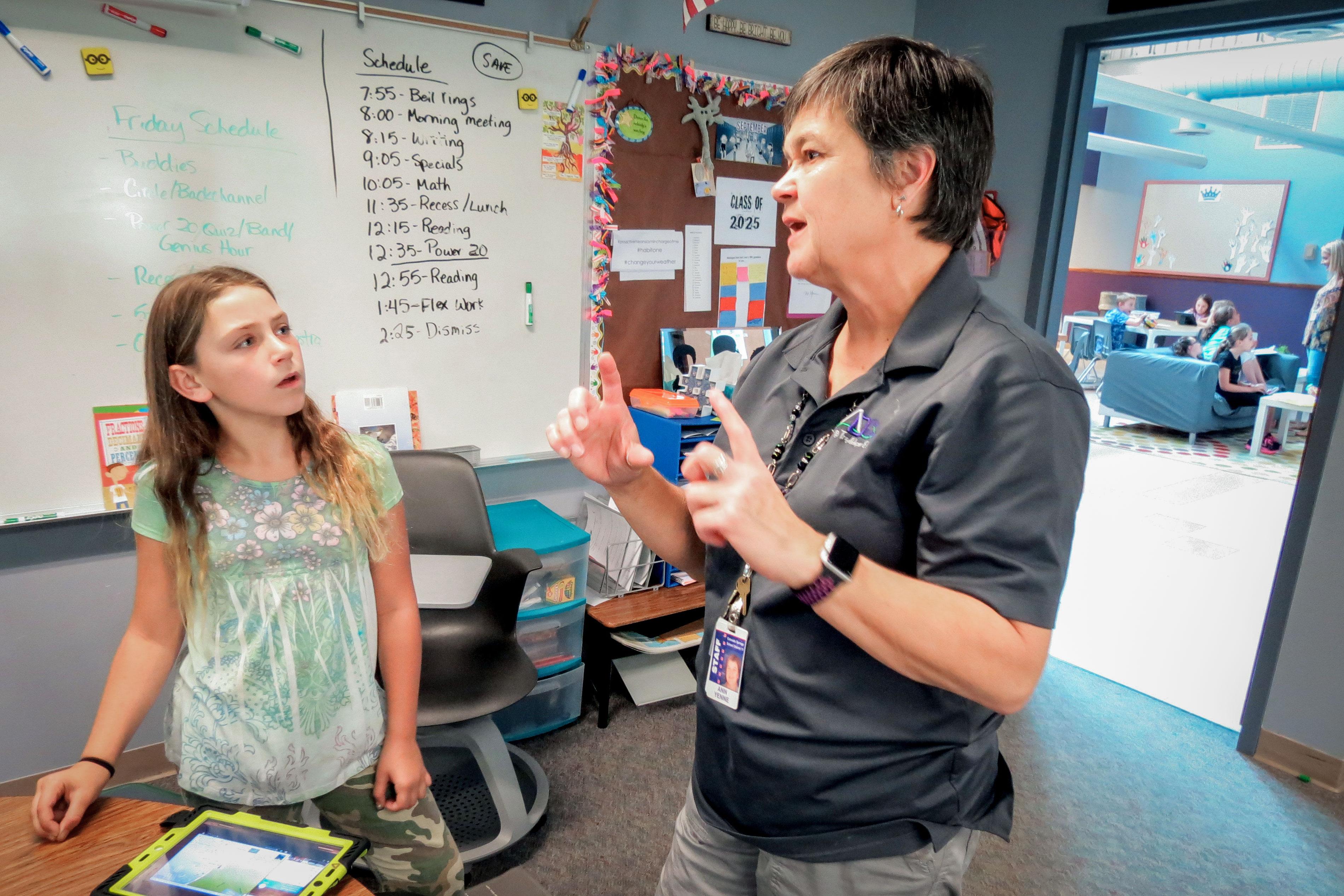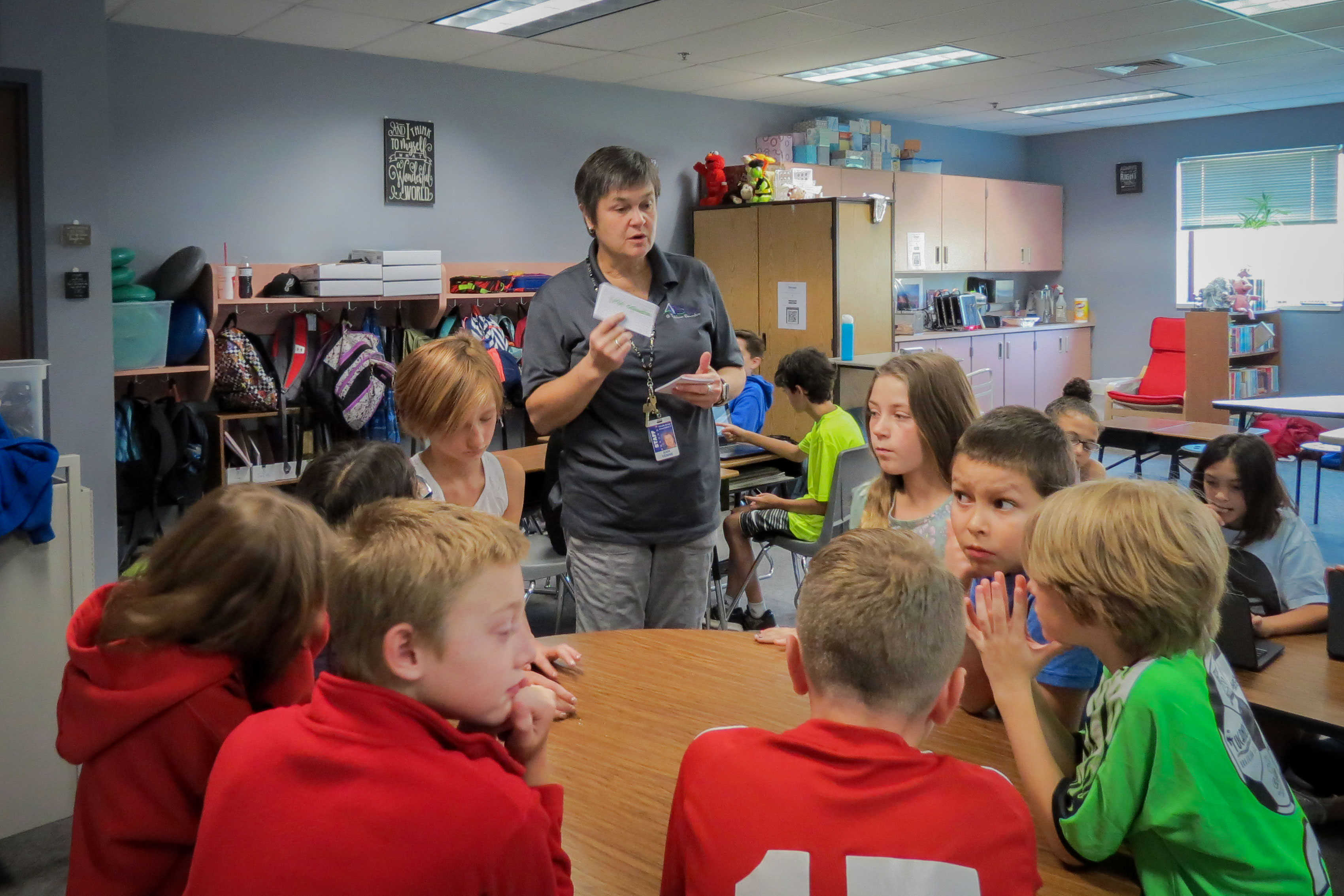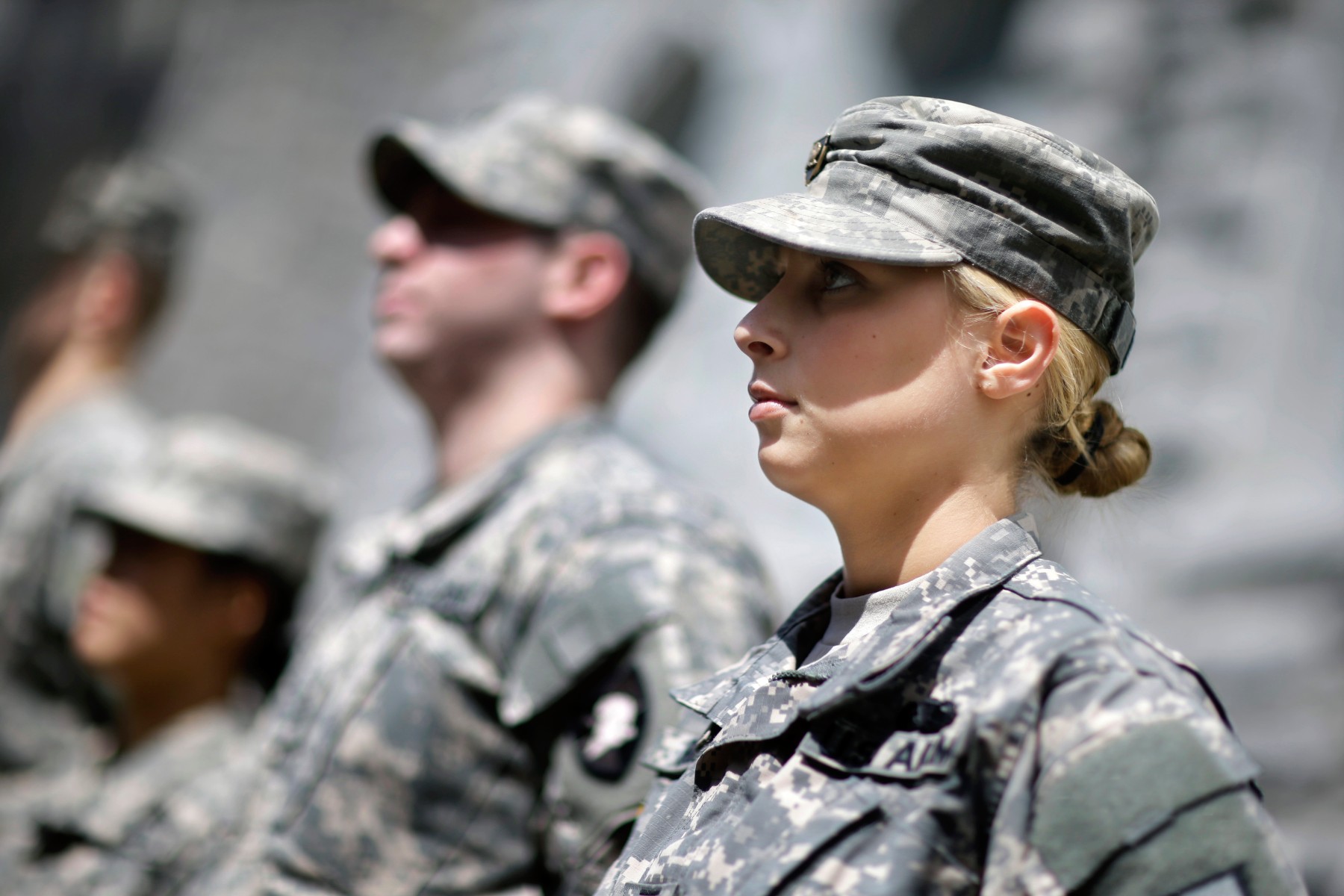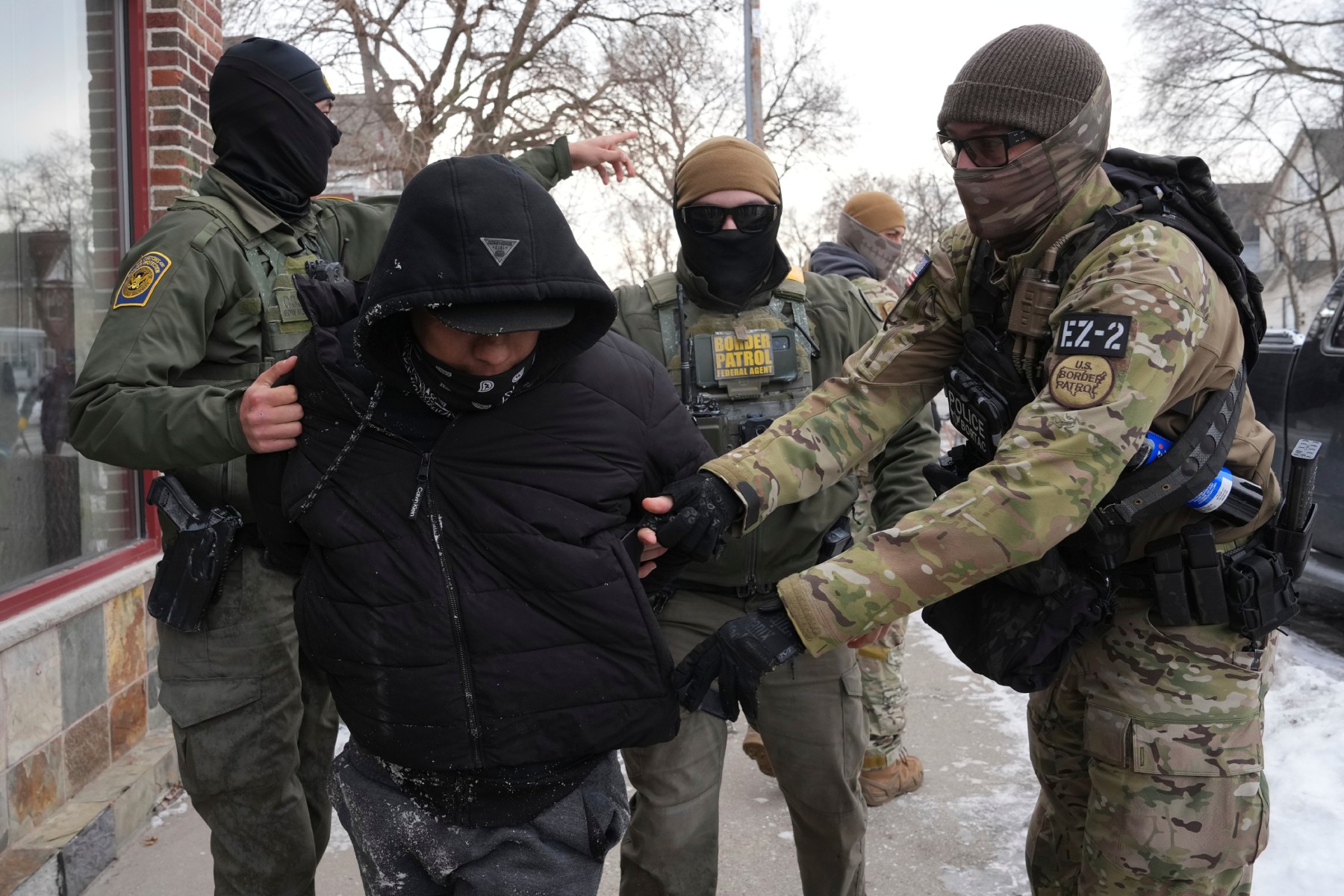

Sometimes it’s tough for one group of kids to get going in a fifth-grade class at Colorado Springs’ Trailblazer Elementary.
“When I get off track it’s sometimes because it’s loud in the room and I need a quiet space and another reason why is I just don’t know what to do,” one of them said.
Every classroom has kids who are checked out. Maybe they don’t understand what’s going on. Maybe they have attention deficit disorder. Maybe something serious is going on at home.
Ann Yenne is on a mission to figure out how to reach every one of those kids.
She’s prepared. Yenne has noise-canceling headphones for students prone to distraction. Others are fidgety and prone to disruption, so there are lots of gadgets like fidget spinners, squishy stress relief balls, finger puppets, bubble timers, slime and tangle toys.
Even these efforts — and a “no rows” classroom that lets kids move and work in small groups — aren’t enough to keep everyone engaged. Yenne turned to Space Lab, an innovation workshop, to help devise an experiment for this academic year to reach all of her students — those who readily pay attention, those with disabilities, those having a bad day, those with a tough home life or those that are distracted — to get them to take ownership of their own learning.
“The purpose of this is for me to understand you as learners,” Yenne told her new fifth-grade class in September.
It’s the start of a new school year and Yenne asked half of her class sitting around a table how they prefer to learn a new skill.
“I like learning a skill in small group ‘cause there’s not as many people, and I like learning it with people who understand what I understand,” said one girl.
Another said she needs a picture or visual. Yenne then asked how they like to practice the skill, and finally how they like to show mastery. They rank and sort their answers. Another student group recorded what the first group said and transcribed their answers.

The exercise is not without its challenges. Some of the boys are having a hard time settling into the task.
“Be appropriate, if you’re not, I will remove your computer from you and you will do this paper-pencil,” Yenne gently scolded.
Several boys are having a hard time engaging. One is drawing pictures, not transcribing. Another, Malachi Njoroge, wants to talk. Its kids like these who Yenne will eventually work with on individual plans to figure out what triggers negative behavior.
She also learned something surprising from the exercise: the disengaged kids like to learn in almost exactly the same way as kids who are super-engaged. She’ll “pre-teach” some skills to her disengaged kids, helping them identify what they need to learn and the best way to learn it.
Then, Yenne conducted extensive interviews with each student on what’s working and what isn’t.
“That, and taking some action on what they said built trust,” she said.
Sometimes, it’s a tiny tweak that shows the student they have the power to fix and make things work for them. She also gleaned insights like what’s going on at home and why on some days kids are half-asleep.
Yes, yes, and yes. #empowerbook pic.twitter.com/69Rpc6jATy
As the year progressed, Yenne learned that those prone to distraction need a choice to be alone for a predetermined amount of time. Malachi , for example, needs to move around a lot and sometimes needs “a small area [to] just chill there for a while and daydream.”
Njoroge can’t handle an entire day in a classroom, so his last period, he gets to help the P.E. teacher with the Kindergartners.
Another example, Yenne and three boys discovered, was that if she writes three things they need to get done each day on a sticky note they can take breaks and do them in the order that works best for them.
“They needed the freedom,” Yenne said. “You know if we’re all doing math but if you feel like you’re going to be more successful at reading right now, do reading. But don’t disturb the rest of us. That’s the caveat, you don’t get to go to Disneyland and take us with you. If you’re going to go, you’re going solo.”
The more she knows about her students, the more she hopes to stave off problems.
A student came in one day and she knew right away that he was in a bad space. She pulled him aside and said, “some days you need to come to school and I have to push you hard to learn but some days you have to come here and be safe and be OK. Today is a ‘be safe be OK day.’” The boy was fine in class, but later got in a fight at recess and suffered the consequences.
Through the year, Yenne worked on building empathy and trust with her students. She gives them multiple opportunities to take a test.
“This isn't supposed to be how about, ‘I gotcha! Hey, caught you not on today.’ It's, ‘Let's get you to a place of mastery.’ And then how are you going to prove to me you know this so that we can let that one go and move on to the next skill?’”

There’s lots of flexibility in her class, sometimes kids do need to wander. Yenne is constantly shifting activities and options, striking that balance between freedom and structure, always looking for new ways to customize students’ learning.
She changes and adapts based on feedback from the kids. If they can’t tell it to her in person, they write it on a sticky note.
Some teachers have a hard time doing that, she said, that it’s about power “and if I take your suggestion I'm saying that you might know something I don't.”
This is the way student Jessie Westberg put it. “A lot of teachers say ‘this is my room, my classroom. She [Ms. Yenne] says this is our classroom, not my classroom. I like that.”
In the old way of teaching, everybody had to stay on the same schedule. Last year students told her they couldn’t stand being stuck on a level in math when they already know it. Now, if they can prove they know the material, they can skip levels. Yenne will teach the paper and pencil skills they need to get ready for sixth grade, “and if you're going to go with me there then I'm going to let you take charge of a different piece of your day.”
Twenty percent of learning time, kids get to work on projects of their choosing. A couple of girls are worked on raising funds for hurricane victims. One girl worked on the problem of animal poaching and another on the benefits of slime.
This is where the recalcitrant, fidgeting group of boys shines. They look happy. They're changed boys. They can’t stop writing now about the things they are passionate about: giraffes.
Yenne’s experiment to reach everyone isn’t over. Her ultimate goal is to get kids to know before they get into the messy world of middle school that they each have valuable skills. Even if they don’t show up on a test.
“You might always feel stupid because you’re in the low reading group, but ‘wow you have got skills that we need,’ ….and we’re a family and we need you,” Yenne said, tears in her eyes. “Some of them feel like they have nothing to offer and that’s not true.”
Teaching this way is a messy way to do school, Yenne admitted. But, when it reaches a student it’s worth it.
“It's exhausting, but it's exhilarating,” she said. “I mean, I couldn't go back to whole group instruction where I'm telling kids to pick their head up.”









